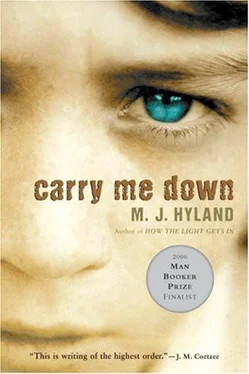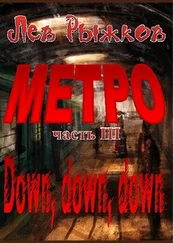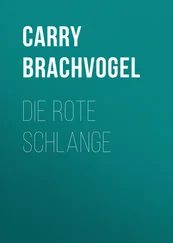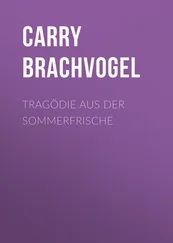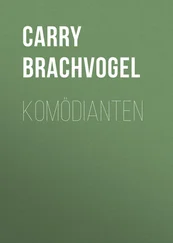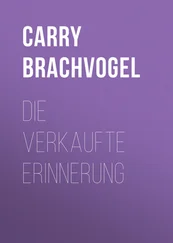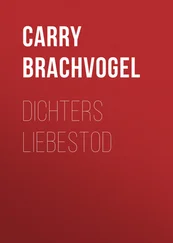Inside the community centre, there’s a doctor, a dentist, and a chemist, and the waiting room is full of people reading magazines.
My mother tells the woman at the desk that I am in agony and we wait for only five minutes.
The dentist’s name is Dr O’Connor. He is tall, with broad shoulders, and wears a dark suit with a red handkerchief sticking out of his top pocket.
I tell him about my tooth and he takes a look in my mouth with a stick that has a mirror on its end. Then, without warning, he pulls my lip down and sticks a needle in my gum.
‘That will stop the pain. Now, relax here in the chair a minute while I pull this tooth out,’ he says.
There is a big painting on his ceiling that I look at while he is removing my tooth. He tells me the painting is by Bruegel. I will remember. I memorise the faces of the peasants, women and children dressed in brown, picking potatoes in the snow. No gloves or hats or scarves.
‘There’s no point staring at a white ceiling,’ says Dr O’Connor. ‘Better to see somebody worse off than you are.’
‘I didn’t feel a thing,’ I say when he has finished, and he shakes my hand and smiles at me for a long time.
‘Good lad. I was worried you might need an extra shot.’
I like him and I wonder what I would be like if I had a different father.
At home, I lie on the couch. My mother is busy in the kitchen. I don’t know where my father is.
As soon as I can eat again, my mother makes a fry-up with mushrooms and sausages and we eat while we listen to the radio turned up loud enough to cover the sound of slamming doors and an argument in the neighbouring flat.
At half four my father walks in. ‘I start work in two days,’ he says.
My mother pats him on the arm, and he looks at her hand.
‘I’m not dying,’ he says. ‘It’s not all over yet.’
‘What work?’ I ask. ‘Have you got into Trinity?’
‘No. I’ve got a scholarship in a metalworks factory.’
‘But will you still sit the exams at Trinity?’ I ask.
‘Not just now,’ he says. ‘Right now I have to win some bread.’
‘What?’ I say.
‘Oh, figure it out,’ he says, ‘and while you’re at it, go to the shop and get some milk and a pack of purple Silk Cut.’
‘How much money will you get paid every week?’ I ask.
‘Go and get the fags and I might tell you when you come back.’
I stand up and, as though my mother can read my mind, she says, ‘Why don’t we go into town tomorrow? Let’s be tourists for a day.’
My father takes my mother’s hands and kisses each in turn, then gives them back to her as though they were something he had on loan and, as she returns her hands to her apron pockets, I notice that they are shaking.
I go to the shop to buy my father’s cigarettes and when I come back the lift has broken again. I take the stairs that smell of urine.
The sun is out over Dublin and it is warm. My father is wearing sunglasses that make him look like a car windscreen and my mother is wearing a knee-length pink dress and white boots. They look like movie stars again.
We walk slowly along the wide footpaths of O’Connell Street to Grafton Street, which curves and ends at Stephen’s Green and the Dandelion market. The streets are busy with people shopping and eating and there are hundreds of buses, one behind the other, like tin elephants, with dozens of small eyes inside, each one keeping watch on the world.
There are people wearing good clothes getting in and out of taxis and people with suitcases coming and going from hotel foyers. Everybody is busy with something to do.
We eat lunch in Bewley’s and afterwards we walk through Stephen’s Green. We stop for ice-cream, which we eat while we watch the ducks being fed by little children. When it’s dark we walk back along Grafton Street. The round streetlamps glow white like pickled onions and as we pass Moore Street we step over gutters running with soapy water used to wash away the vegetable scraps from today’s market. I wish that we could live here, in town, near these lamps and the people singing for money in the street.
I hold my mother’s hand and my father whistles as we walk once again to the top of O’Connell Street. We pass by the cinema and I stop. ‘Can we see a film? Can we see what’s showing?’
My father shrugs. ‘I see no reason why we shouldn’t.’
Butch Cassidy and the Sundance Kid is showing, but children under sixteen are not supposed to go in.
‘Just walk in behind me,’ says my father. ‘Just walk in.’
My mother agrees. We get our tickets and give them to the usher and although the screening started twelve minutes ago I sit between my mother and father in the seventh row from the front and it’s the best film I’ve ever seen.
After the film, we eat fish and chips on a bench inside the grounds of Trinity College. Although it is dark and cooler now, there are students sitting on their coats on the lawn or walking and riding bicycles along the paths paved with cobblestones.
Even though they are strangers to him, my father smiles at the students as they come and go. His head turns to watch them as they come down the stairs near our seat, as they come in and out of the door behind us, and as they take their bicycles and head for the street. Then he looks up at the lighted rooms and nods his head.
‘You’ll be here one day,’ I say.
‘That’s the strong hope,’ he says.
My mother kisses him on the cheek and holds his hand.
‘Fish and chips are good,’ I say, ‘but the smell is better. I wish you could eat the smell.’
They laugh.
‘Time to go home,’ says my mother and as she stands she tries to pull me up with her. But I’m far too heavy for her and she stumbles. I catch her before she falls.
My father laughs. ‘Strange pair,’ he says.
We are sitting on the upper deck of the bus on the way home. Four drunk men get on and they shout as they come up the stairs. I turn in my seat to watch them. They can barely walk. They holler and swear and sing and bash against the seats and, as they pass us on their way to the front, one of them drops a glass on the floor. My mother brushes her leg clean of the spray of liquid but says nothing.
The men sit in the row in front of us and for a while they talk about their night. Then one of them turns to look at us. He stares too long at my mother. My father folds his arms across his chest and his knee jumps up and down.
My mother stands and so do I.
‘What’s this?’ says the drunk. ‘A family of giants? And look here. A very pretty giantess’
My father stands and a second drunk says, ‘Going off for a game of basketball, are ye? What’s your team called? The beanstalks?’
‘Come on,’ says my father. ‘We’re going downstairs.’
He pushes me in the back as we walk and tells me to hurry. We go down and sit near the driver, who turns to us. ‘A bit rowdy up there. It’s the same every night.’
We nod and agree and he smiles at us in the rear-vision. Even though the drunks are upstairs, the smell of alcohol is so strong it is as though the men have leaked whiskey and beer from their skin, leaked onto the floor.
Without any warning, my father hits me hard across the back of my head.
‘For feck’s sake!’ he shouts. ‘Stop scratching your head.’
‘Sorry,’ I say, but I’m not. The drunks have made him angry, not me. My mother looks out the window. If my father was not with us, she would tend to me or at the very least say something. But she shakes her head as though to say, ‘How stupid.’ But who does she disapprove of — him or me?
It’s our second Saturday in Ballymun; more than a week here now and I’m returning from the shops with two bottles of milk, a pound of sugar and two pans of bread.
Читать дальше
